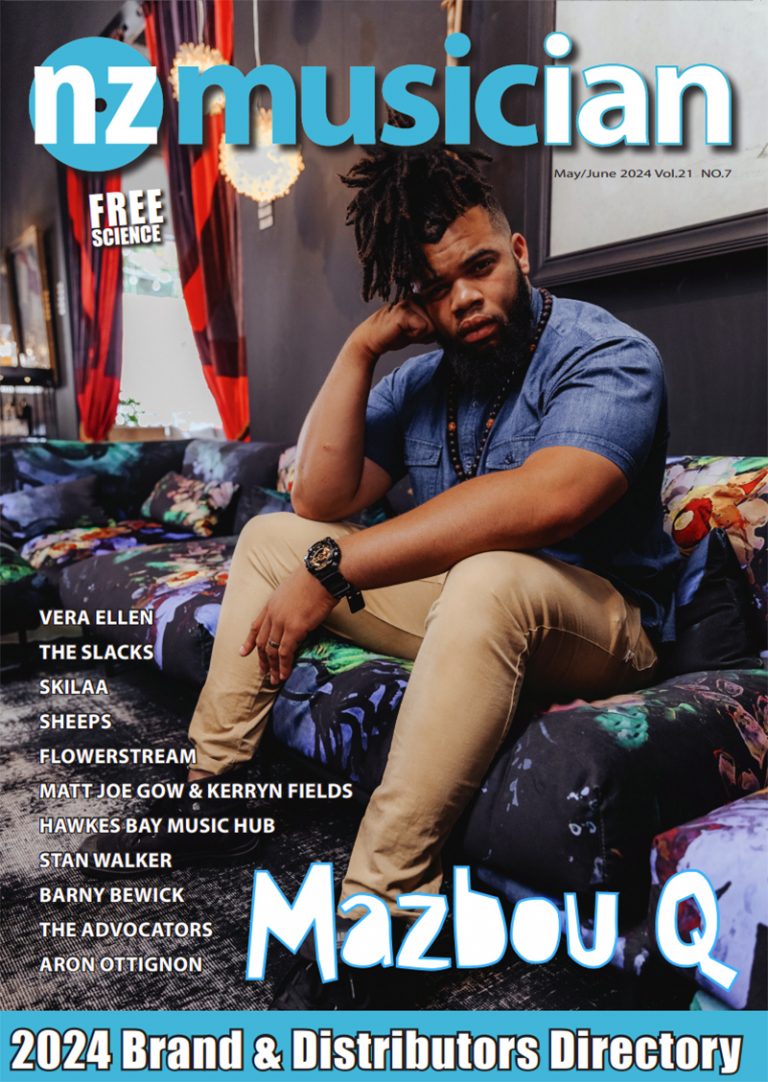Auckland As A City of Music
Auckland As A City of Music
Publicly announced in 2018, the thinking and work behind the plan to get Auckland identified as one of the UNESCO Cities of Music goes back more than two years before that date. Employed by Recorded Music NZ as the organisation’s Marketing & Special Projects person, Mark Roach was integral in bringing this grand plan to fruition. Who better then to explain the background and future of Auckland as a ‘ City of Music ’?
There is a growing recognition of music as a transformative power, not only as a cultural staple but also as a social and economic driver for cities. The “music city” movement is a relatively new global trend which is being utilised by cities to bolster and grow local music scenes, and has far wider implications of helping to make more vibrant, liveable and sustainable communities.
Even powerhouse cities like New York, Berlin and London are now looking more closely at their cities’ music and night-time economies, and devising policies to protect and promote their music industries, as urban intensification and other modern pressures threaten these city-defining characteristics.
On a branding level, cities such as Austin (‘Music capital of the world’), Melbourne (‘Live music capital of the world’) and Nashville (simply, ‘Music City’) have successfully turned their music credentials into marketing drawcards, attracting tourists, musicians and businesses to their regions. Vitally, this is not just music as a ‘nice to have’, but a core part of the cities’ identities and a major driver of their overall economies.
Auckland, too, has the opportunity to be recognised globally for its varied music, creativity, talent and culture. However, as much as those global pathways are vital to the export of our talent and creativity, there is much work to be done at grassroots and local level as well. The Auckland Music Strategy, which launched late last year, provides a roadmap for action: celebrating what we have, renovating where needed, and creating new opportunities for the entire creative community.
A little bit of back story. At the beginning of 2016, I approached Auckland Council on behalf of Recorded Music NZ and APRA with the proposal of Auckland joining the UNESCO Creative Cities Network (UCCN). Around the same time, Music Canada, an organisation based in Toronto with roughly the same function as Recorded Music NZ, published the landmark document Mastering A Music City – a blueprint for cities considering music strategies, and which cited the many advantages to becoming a music city. Toronto itself has successfully initiated music city policy without joining the UCCN, however, there is a certain kudos attached to the UNESCO designation which helps when motivating political will. The UCCN also provides a pre-existing global network that New Zealand’s creative industries can tap into. (As an aside, the mantra has always been: Music as a gateway for all creative art forms, and Auckland as a gateway for all New Zealanders.)
After obtaining approval from the city’s governing body, followed by a rigorous application process to UNESCO, the formal designation was conferred on 1 November 2017. Auckland joined a network of 180 cities from 72 countries at the frontline of UNESCO’s efforts to foster innovation and creativity as key drivers for more sustainable and inclusive urban development. It is now one of 31 UNESCO Cities of Music worldwide, and New Zealand’s second Creative City, alongside Dunedin (City of Literature).
The most commonly-asked question is: what does this mean for Auckland? First and foremost it provides us, the music community, with opportunities to have meaningful conversations with Auckland Council at a regulatory and policy level. The three key music organisations (Recorded Music NZ, APRA and the NZ Music Commission) literally sit around the table with Auckland Council, its economic & tourism development arm ATEED, and its live events arm Regional Facilities Auckland, all of who form the governance group for Auckland City of Music. These organisations then feed out to many other representative bodies and institutions to ensure all voices are heard.
Wider than this, the strategy sets out numerous action areas with the scope to expand and add to these over time. In the next few months, a Live Music Taskforce will set about identifying the most urgent needs of our grassroots venues and recommending remedies. Benchmarking the Auckland sector is planned with comprehensive economic valuation, diversity studies and a live music census, and heritage projects will celebrate our rich musical history. We will also continue to seek global opportunities through our UCCN partners.
This project and the strategy will ultimately be successful through the combined efforts of the entire music community. To share ideas, get involved in work groups and keep abreast of developments, please get in touch via the website:


